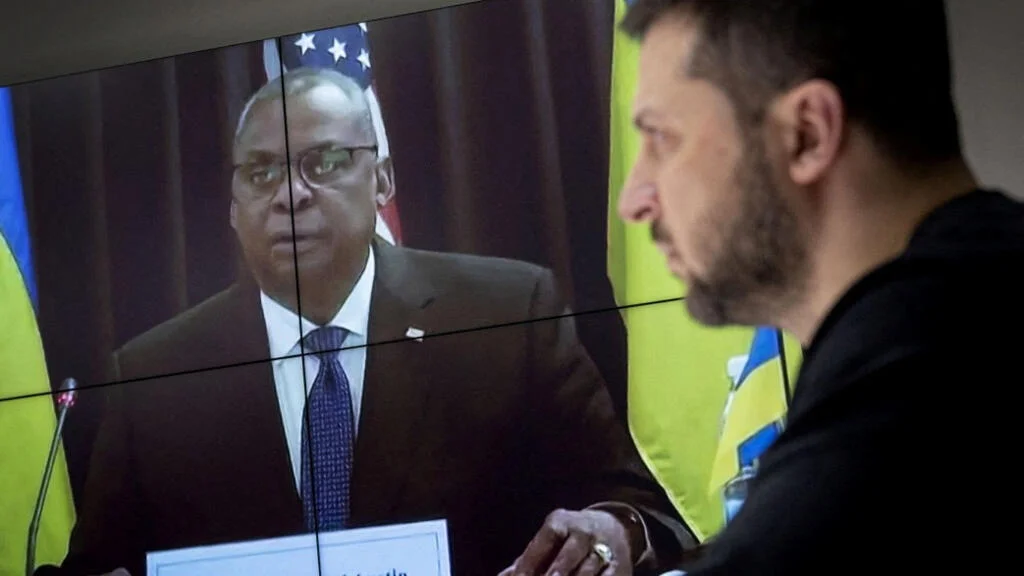On January 20, 2023, Germany announced that no decision had been made regarding the supply of Leopard 2 tanks to Ukraine during a critical US-led meeting at Ramstein Air Base, despite an impassioned plea from Ukrainian President Volodymyr Zelensky. The gathering, attended by representatives from 50 countries, aimed to bolster military aid to Ukraine as it confronts Russian forces. German Defense Minister Boris Pistorius told reporters, “We still cannot say when a decision will be taken, and what the decision will be, when it comes to the Leopard tank,” rejecting claims that Germany was solely obstructing deliveries.
Mounting Pressure and Zelensky’s Appeal
Expectations were high that Western allies would agree to provide German-made Leopard 2 tanks, critical for Ukraine’s planned offensives against Russian troops. Countries like Poland and Finland, which hold their own Leopard stocks, pressed Germany to either supply the tanks or grant re-export permissions, as Berlin’s approval is required for transfers to non-NATO countries like Ukraine. Zelensky, addressing the meeting via video-link, urged allies to “speed up” arms deliveries, calling for a “Ramstein of tanks” and future meetings to focus on F-16 jets and long-range missiles. He emphasized the need to avoid “bargaining” over tank numbers to “stop evil.”
Germany’s Cautious Stance
Pistorius denied accusations that Germany was isolated in its hesitation, stating, “The impression that there is a united coalition and that Germany is standing in the way is wrong.” He noted that he had ordered a stock-take of Leopard tanks to enable swift action if a decision to supply them is made. Germany’s reluctance stems from concerns about escalating the conflict, with the Kremlin warning that Western tank deliveries would be an “extremely dangerous” escalation. Berlin has also faced criticism for reportedly linking its approval to the US supplying M1 Abrams tanks, a condition US officials have resisted due to logistical challenges.
Broader Support and Strategic Context
US Defense Secretary Lloyd Austin, the meeting’s host, described the moment as “decisive” for Ukraine, urging allies to “dig even deeper” to provide weaponry, noting Russia’s dwindling ammunition and significant losses. The US announced a $2.5 billion aid package, including Bradley fighting vehicles, Stryker armored personnel carriers, air defense systems, and extensive ammunition, but excluded the ATACMS long-range missiles sought by Ukraine due to fears of strikes deep into Russian territory or Crimea. Finland also pledged a 400-million-euro package with heavy artillery, while Britain committed to supplying Challenger 2 tanks.
Kremlin’s Response and Ongoing Tensions
The Kremlin accused the West of a “dramatic delusion” in believing Ukraine could achieve battlefield victory, warning that the conflict was escalating. Despite the lack of a tank decision, the Ramstein meeting highlighted significant Western support for Ukraine, though the absence of long-range missiles and Leopard tanks disappointed Kyiv’s calls for game-changing weaponry. The failure to reach a consensus on tanks underscored divisions among allies, particularly Germany’s cautious approach, driven by Chancellor Olaf Scholz’s concerns about provoking Russia.
Subsequent Developments
While the January 20 meeting ended without a tank decision, Germany reversed its stance days later. On January 25, 2023, Chancellor Scholz announced that Germany would supply 14 Leopard 2 tanks to Ukraine and permit other countries, like Poland, to re-export theirs. This decision followed intense diplomatic pressure and the US agreeing to send 31 M1 Abrams tanks, marking a significant shift in Western support for Ukraine’s defense efforts.






